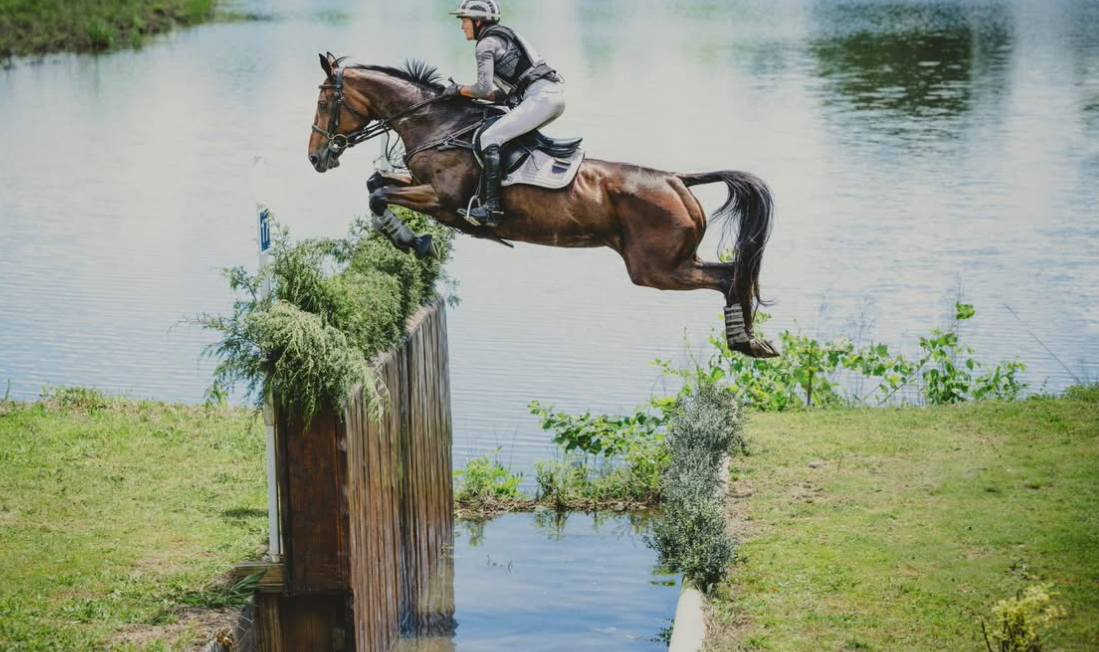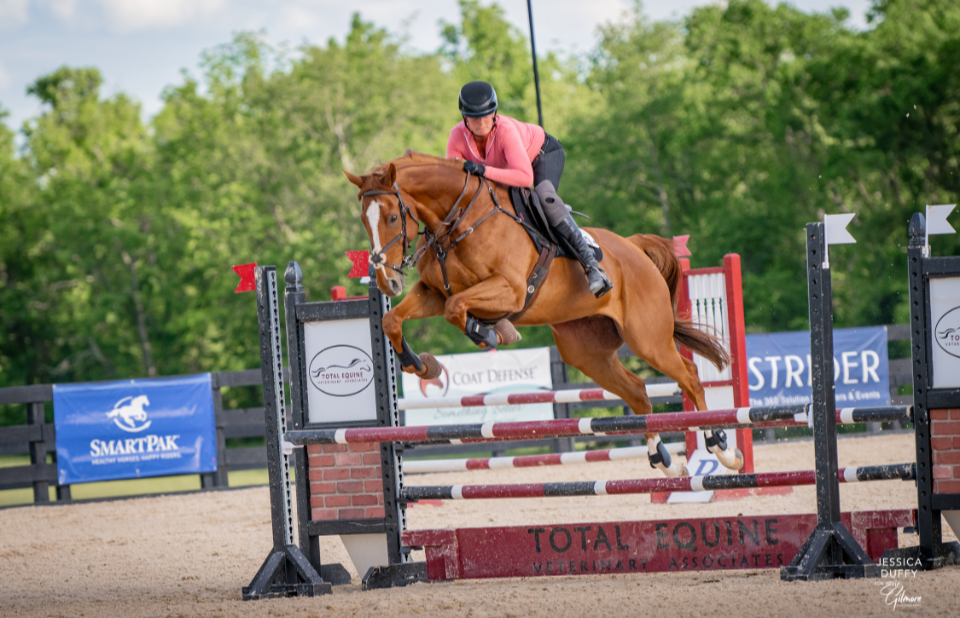
We must include everyone. Photo by Holly Covey
I’ve been walking around saying this for a couple of weeks, and I think it is starting to sink in. It’s not that we have to go knock on our black neighbor’s door and ask them, “What can I do?” That, in itself, is a defeat of everything this anti-racism movement stands for. With thought, I think, you can find the answers to “what can I do?” in your heart.
So here’s mine.
If you are a part of the world, you know what is going on at the moment does relate to our sport of eventing, and to horse sports in general. We know we are primarily perceived as a white, upper middle class or above endeavor. And we have to change that. We have to.
A friend said it best: assuming someone is what they are not, could be the root of all of this. Don’t assume someone ISN’T a rider, trainer, or owner. Don’t assume they are always grooms or support staff. Open your eyes and see a human being. My blacksmith added this wisdom: “There are a lot of people in the horse world that are stuck up.”
So how do we train ourselves to change? I don’t have all the answers and am no expert, I’m just old and been around a while. Here’s a few thoughts swirling around my head on how change can be made that could be meaningful. I am sure others have more, better thoughts — but I’m brave enough to write them down for you — and sure do welcome more ideas and correction of any of my bad ideas.
I would say first: support youth.
Our young riders are our saving grace. The attitudes and thinking of kids 17 years old takes my breath away. Area II Young Rider Macy Beach marched in a BLM protest in Georgetown, DE, the day before she competed at Plantation Field Horse Trials in a JYOP division. Check out the editorial written by young hunter rider Sophie Gochman. There are lots more kids out there speaking, writing, marching and changing their worlds. They can and are doing it. Just follow their lead!
If you are in this sport and don’t know how you can help, start by supporting your Area Young Rider groups. Volunteer to assist with fundraisers, help coordinate camps, give support by donating something, offer time, funds, publicity, whatever is needed. Youth will change the world. They will change you.
Second: doorkeeping needs to change. My second suggestion is to those in leadership – when someone offers, welcome it with humility and a smile – not with a straight face and dismissive attitude. Let go of the superiority. Bring more into your fold. Stop the ever-so-slight unwelcoming look, the reserved superiority, the whispered comments behind the back, the groupthink that is, right now, unraveling a civil nation. We in horse sport are not as integrated as we should be. We are not as inclusive as we should be. Those are facts and we ignore them at the risk of losing the whole shebang. Time for that to change.
We in horse sports have to get a lot better at inclusion. In a hurry.
Be fair in all your dealings with anyone, treat all the same. This is hard to say and harder to do. I am in awe, on a regular basis, of the leaders and officials at events in our sport with long experience at doing this. We do have some incredible people who are super examples of how to behave and treat groups and competitors in sport. They are often under pressure by the parents, the riders, the trainers who are always interested only in one outcome, and I’ve watched their skill and patience in treating everyone as equally as possible.
These are our officials, our judges, and our technical delegates, and organizers. I trust many of them to the end of the earth. Because they travel, and judge, and make decisions that affect people they don’t know, they are well trained, experienced and interpreting rules and reading situations. They know a welcoming attitude saves the day, especially when you are short a couple of jump judges on cross-country day. I hold our sport’s officials in very high esteem — and expect them to embody fairness and inclusion at every event, without exception. Yes, that’s a high standard — but knowing the kind of people we’ve got in this sport, it’s doable.
I urge you to spend some time with eventing judges, TDs, organizers. Most of this class in eventing has long ago learned to practice the art of inclusion, because they know it takes a whole village to put on an event, and every single person is of value.
Third: change your behavior. Rudeness is just not welcome any more in business, in play, in sport. Parents – your kid is here to learn. Trainers – your students are here to learn. Owners – your horse is here to learn. These opportunities are not “paid for” by your entry fee – far from it. And no matter how “hard your (kid, trainer, horse) has worked to “get there”, you don’t have a right to demean, dismiss, or denigrate someone else in this sport who is there from the goodness of their heart to make your event better. Questioning those who are giving time, money and energy to making sure you have an event to go to is part of the entitlement culture, and it’s a small step from there to the bias culture. There is a dearth of the big picture view sometimes. I’m not perfect and I’m going to make manners a real goal.
Fourth: change your perspective by volunteering. Our sport’s volunteer culture has changed in the last few years and that is due to some really heavy lifting by some pretty savvy people at the top of the sport all the way to very smallest event. Volunteerism is a huge gateway to eventing, and the more support that is given for volunteers, the more we include all in our love. Volunteers make a difference. They are our lifeblood. If you can, volunteer. If you can, help coordinate volunteers. If you can, support volunteers at your local event in any way possible. If you are a trainer, rider or coach, you need to volunteer once a year at minimum. Because you have to see the sport from someone else’s view to appreciate it fully. We have come a long way since I was condescendingly branded by a sport leader as “oh, she’s JUST a volunteer” at a meeting. But it’s still there.
Here’s another thing we can do personally to effect change.
This one’s a little harder, but you personally can make a difference in your corner of the world. Do not just dismiss the racism and white superiority you see on your social media. While some say don’t get involved, I’d say pick your fights — but do call out the racists on your social media lists. At the very least, unfriend them or block them — but if you feel so moved, please explain that attitude does not have a place in your life or in your sport. Many people don’t want to engage, but if we all sit here on our hands and let it wash over us, and allow these attitudes to perpetuate, we will continue to suffer as a nation and as a sport. Keep up the relentless, unending pressure to change attitudes. It’s a narrative that we can change. Don’t be afraid to speak. Words matter.
I have been incredibly affected by the words Gamal Awad has written on Facebook. He’s a Marine colonel, and husband of Canadian Olympian Hawley Bennett-Awad. And many others in positions to know intimately what this movement is about. I’ve also read the other sides, an incredibly tone-deaf public commentary by a hunter-jumper world luminary, that prompted me to think I should really write something. Because we are people and we live now in this world, not in some fantasy island.
I’m a talker. Because I can’t shut up, I’ve met some incredibly great people in this sport. I parked my horse trailer next Mogie Bearden-Muller at a Fair Hill event not long after she moved east from California, and next thing you know I organized a clinic and she was helping Adult Riders and she got me into learning about course design. I went to an Area meeting and met Cindy DePorter, who is an FEI judge and TD, judged all over the world, now running for office in her home county in North Carolina. Volunteering, I’ve met every organizer within 200 miles and whole lot of volunteers – from all walks of life. Surgeons. Truck drivers. Corporate lawyers. Veterinarians. Bartenders. Postal employees. Clerks, supervisors, photographers, nurses, doctors, prison guards, accountants (and I think I’ve even worked with a few secret service people but they couldn’t confirm or deny). People like this inspire me with their quality and fairness. I hope we never stop welcoming all of them. Every single one has value and is needed.
I am not a perfect person, and I don’t always get it right, but this thing, this inclusion and fairness stuff — we have to get that right. Are you starting to work on it today?
Start with openness. Talk to others. Include — really, include — everyone. Say “Hi”, chat, wave, smile. (Until you are a pest! I know, I am one.) Everyone can do that. Did you speak to someone at the back gate? Did you talk to the person who parked next to you? Did you wave at a non-friend? Did you thank a volunteer sincerely? How many times did you smile at a stranger today?
To welcome more people into the sport of eventing is my small, maybe insignificant idea that could be the way we can do our small part, to bring change to the larger question of inherent bias. If you do not feel we need to do this or to make any sort of change, no matter how small, respectfully — you’re part of the problem. Step aside, please, and allow this march to continue with purpose and peace. Go Eventing.









































